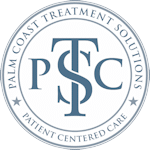Popular Post
Jump to Section
Alcoholism is a significant public health issue that has far-reaching effects on individuals and communities worldwide. It is a chronic disorder characterized by the inability to control or stop alcohol consumption despite the negative consequences it brings to physical, mental, and social well-being. To effectively address alcoholism, it is essential to understand its nature and provide appropriate treatment options. In this article, we will delve into the topic of alcoholism, citing two credible sources: the National Institute on Alcohol Abuse and Alcoholism (NIAAA) and the Journal of Substance Abuse Treatment.

Defining Alcoholism
Alcoholism, also referred to as alcohol use disorder (AUD), is a multifaceted condition that profoundly impacts an individual’s brain and behavior. According to the NIAAA, it is characterized by a compulsive need to consume alcohol, an inability to control alcohol intake, and the experience of negative emotional states when not drinking. Alcoholism can lead to a myriad of physical and psychological problems, including liver damage, cognitive impairment, and strained relationships.
The Neurobiology of Alcoholism
The neurobiology of alcoholism is a complex field that explores the effects of chronic alcohol consumption on the brain. The Journal of Substance Abuse Treatment highlights that alcoholism alters the structure and function of the brain, resulting in significant changes in neurochemistry. Chronic alcohol use disrupts the brain’s reward system,
reinforcing the desire to seek alcohol. Key neurotransmitters, such as gamma-aminobutyric acid (GABA), glutamate, dopamine, and serotonin, are affected, leading to pleasurable effects and the development of dependence.
The NIAAA reports that long-term alcohol abuse leads to neuroadaptation, a phenomenon in which the brain becomes increasingly tolerant to alcohol. Consequently, individuals with alcoholism require higher amounts of alcohol to achieve the desired effect. Furthermore, these neuroadaptations contribute to withdrawal symptoms, making it challenging for individuals to quit drinking.
Risk Factors and Impact
Several factors contribute to the development of alcoholism. The NIAAA emphasizes the role of genetic predisposition, as individuals with a family history of alcoholism are more susceptible to the disorder. Additionally, environmental factors, such as exposure to environments with excessive drinking, and co-occurring mental health disorders, can increase the
risk of alcoholism.
Alcoholism has a profound impact on individuals and society as a whole. The Journal of Substance Abuse Treatment highlights the social and economic burden associated with alcoholism. It results in increased healthcare costs, reduced workplace productivity, and a higher incidence of accidents and crime. Families and relationships are also significantly affected, with heightened tension, conflict, and breakdowns in communication.
Seeking Help and Treatment for Alcoholism
Recognizing the signs of alcoholism is crucial for early intervention and successful treatment. The NIAAA provides various resources to help individuals and their loved ones assess drinking patterns and seek appropriate support. These resources include helplines, online self-assessment tools, and treatment directories.
Alcoholism treatment typically involves a comprehensive approach. The Journal of Substance Abuse Treatment suggests that treatment options may include medications to reduce cravings and manage withdrawal symptoms, counseling or therapy to address underlying psychological factors, and participation in support groups to provide social support and encouragement.
Behavioral therapies, such as cognitive-behavioral therapy (CBT) and motivational enhancement therapy (MET), has been proven effective in treating alcoholism. They aim to modify an individual’s thoughts, behaviors, and motivations related to alcohol use, helping them develop healthier coping mechanisms and reduce alcohol consumption.
In conclusion, alcoholism is a serious and complex disease with detrimental effects on individuals and society. By understanding the nature of alcoholism, its neurobiological underpinnings, and the associated risk factors and impact, we can promote early intervention, support those affected, and provide effective treatment options.
Contact Us
CALL US NOW
Palm Coast Treatment Centers will iron out the details for you in a manner that will make you confident in your path to sobriety. That first simple call is your ticket to making Palm Coast Treatment Centers your solution for addiction. Get the freedom from addiction that you deserve today.
Call Us Now: (386) 284-4151Updated News
LATEST POSTS
Palm Coast Recovery Solutions makes numerous media outlets available to encourage you in your recovery process. Digital media literature is approved by a licensed professional and intended to guide you in your recovery path.

Years of experience
Our leadership team has extensive experience in dual-diagnosis treatment and is ready to help those who are struggling with substance use and mental health.

Specialists
Our staff consists of many licensed addiction and mental health treatment facilitators and other staff who are ready to share their experience and their success.

Happy patients
Palm Coast Treatment Centers has helped over 2,000 people who have struggled with substance use and mental health to find road to recovery.
Contact Us
GET IN TOUCH
Reaching out to Palm Coast Treatment Centers may be the most important call of your recovery process. A caring professional is waiting for your call to be your guide to addiction-free living.
Need Help? Contact Us
Areas and Cities We Serve SUD & Mental Health Treatments in Florida
OviedoOrlandoDelandJacksonvillePort St. LucieTampaAltamonte SpringsKissimmeeSt CloudWinter GardenWinter ParkClermontMelbourneSanfordDeltonaLake MaryMount DoraLeesburgThe VillagesUnion ParkSt. AugustineDupontPort OrangeOrmond BeachHolly HillDaytona BeachEdgewaterOak HillMaytownEldoraGenevaTitusvilleChristmasPort St. JohnPort CanaveralCocoa BeachOsteenSatellite BeachPalm BayRoselandSebastianFellsmereGiffordRockledge
 info@shc.health
info@shc.health 









